Feb 01, · Pneumocephalus and meningitis have been reported as a consequence of acute otitis media and mastoiditis, establishing a precedent for ingress of S pneumoniae from airfilled sinus7 Sphenoid sinusitis may also be complicated by pneumococcal meningitis8Introduction Streptococcus pneumoniae infection in adults is related to pneumonia, meningitis and bacteremia Its care costs in adults are not well documented in Colombia and it has a greater impact in people over 45 years oldNov 21, 11 · Among bacterial causes of meningitis, Streptococcus pneumoniae (the pneumococcus) is associated with the highest casefatality and is the most likely to leave survivors with permanent sequelae For the year 00, the WHO's Global Burden of Disease project estimated 100,000 cases of pneumococcal meningitis occurred among children

Burden Of Streptococcus Pneumoniae And Haemophilus Influenzae Type B Disease In Children In The Era Of Conjugate Vaccines Global Regional And National Estimates For 00 15 The Lancet Global Health
Strep pneumoniae meningitis complications
Strep pneumoniae meningitis complications-May 24, 18 · INTRODUCTION Invasive pneumococcal disease is defined as an infection confirmed by the isolation of Streptococcus pneumoniae from a normally sterile site (eg, blood, cerebrospinal fluid, and pleural, joint, or peritoneal fluid but not sputum)S pneumoniae (the pneumococcus) is an important and wellknown cause of bacteremia in both immunocompetentStreptococcus pneumoniae are bacteria that are commonly found in the nose and throat of children and adults S pneumoniae can infect the lungs (pneumonia) or ears (otitis media), but it is considered "invasive" when it is found in the blood, spinal fluid (eg, meningitis), or other site that normally does not have bacteria present



Pathogenesis And Pathophysiology Of Pneumococcal Meningitis Sciencedirect
May 10, 19 · Meningitis In rare cases, K pneumoniae can cause bacterial meningitis, or inflammation of the membranes that cover the brain and spinal cord It happens when bacteria infect the fluid aroundMeningitis due to S pneumoniae pediatric patients with meningitis due to either H influenzae or S pneumoniae Dexamethasone should be administered 10 min before antimicrobial therapy for maximal efficacy and continued for 24 days If dexamethasone is utilized forMeningitis in individuals at the extremes of age infants, young children and the elderly is commonly caused by S pneumoniae Younger adults with anatomic or functional asplenia, haemoglobinopathies, such as sickle cell disease, or who are otherwise immunocompromised, also have an increased susceptibility to S pneumoniae infection
May 01, 03 · Streptococcus pneumoniae S pneumoniae in the UK is usually susceptible to penicillin and cefotaxime While penicillin resistance does occur and may be increasing in incidence, an empirical combination of penicillin or ampicillin and cefotaxime is satisfactoryS pneumoniae 1014 days Aerobic GNRs 21 days L monocytogenes 21 days Dexamethasone should be administered 10 min before antimicrobial therapy for maximal efficacy Continue for 24 days for pneumococcal meningitis Avoid piperacillintazobactam due to poor CNS penetration Use adjusted body weight for obese patients to calculateFeb 01, 05 · Vascular events related to meningitis typically occur within the first two weeks of disease and are most commonly seen with Streptococcus pneumoniae, Mycobacterium tuberculosis, Neisseria meningitidis, and Haemophilus influenzae 1– 3 Delayed postinfectious vascular events are less commonly reported in association with flow defects from fixed stenoses
INTRODUCTION Streptococcus pneumoniae is a significant cause of childhood bacterial meningitis in India The United States Food and Drug Administration has licensed an immunochromatographic (ICT) test, Binax®NOW™, to detect the C polysaccharide antigenMar 30, 1995 · Correspondence from The New England Journal of Medicine — Meningitis Due to CeftriaxoneResistant Streptococcus pneumoniae only 23 percent of blood isolates of S pneumoniae obtained at twoStreptococcus pneumoniae is one of the most common causes of acute bacterial meningitis This topic reviews meningitis caused by S pneumoniae (pneumococcal meningitis) The pathogenesis, epidemiology, clinical features, complications, diagnosis, and treatment of bacterial meningitis in neonates and older children are discussed separately
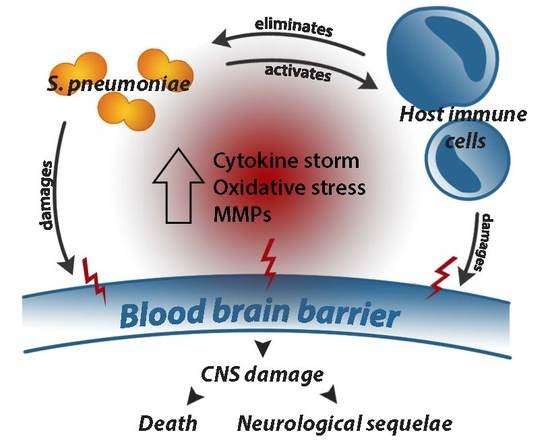


Ijms Free Full Text Blood Brain Barrier Pathology And Cns Outcomes In Streptococcus Pneumoniae Meningitis
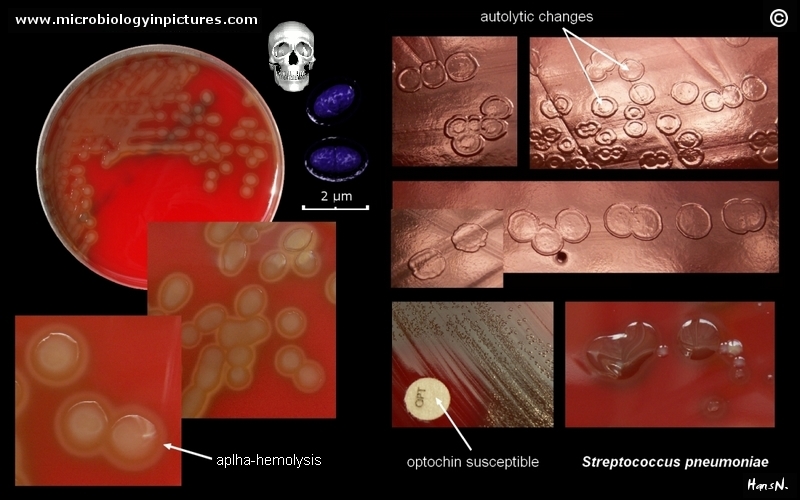


Streptococcus Pneumoniae Colony Morphology And Microscopic Appearance Basic Characteristic And Tests For Identification Of Streptococcus Pneumoniae Bacteria Images Of S Pneumoniae Antibiotic Treatment Of Pneumoococcal Infections
Apr 29, 21 · Several kinds of bacteria can cause the infection, including the respiratory pathogens Streptococcus pneumoniae and Haemophilus influenzae, which can be attributed to some 0,000 meningitisJun 01, 21 · Age It's possible to be diagnosed with bacterial meningitis at any age, but infants, teens, and young adults are at higher risk;S pneumoniae is a common member of the bacterial flora colonizing the nose and throat of 5–10% of healthy adults and –40% of healthy children However, it is also a cause of significant disease, being a leading cause of pneumonia, bacterial meningitis, and sepsis



Meningitis Due To Streptococcus Pneumoniae History Of Vaccines



Pneumococcal Disease Photos Cdc
Living in community Living in close quarters with others can put you at higher risk of being exposed to a bacterial infection and bacterial meningitisExamples include adults living in institutional settings and young adults living onIllness seldom occurs in close contacts to Streptococcus pneumoniae meningitis Since the recommendations for use of rifampin and other preventive antibiotics vary according to the specific situation, it is best to consult with a physician or local health department for recommendations Even if rifampin or another preventive antibiotic is takenINFECTIOUS MENINGITIS Case study # 1 Mr HP, a 70yearold man, is being treated for meningitis caused by S pneumoniae that is moderately resistant to penicillin (MIC value 10 mg/L) Despite 7 days of treatment with intravenous vancomycin and cefotaxime, there has been little improvement in his clinical condition A CT scan has shown meningeal inflammation consistent with meningitis
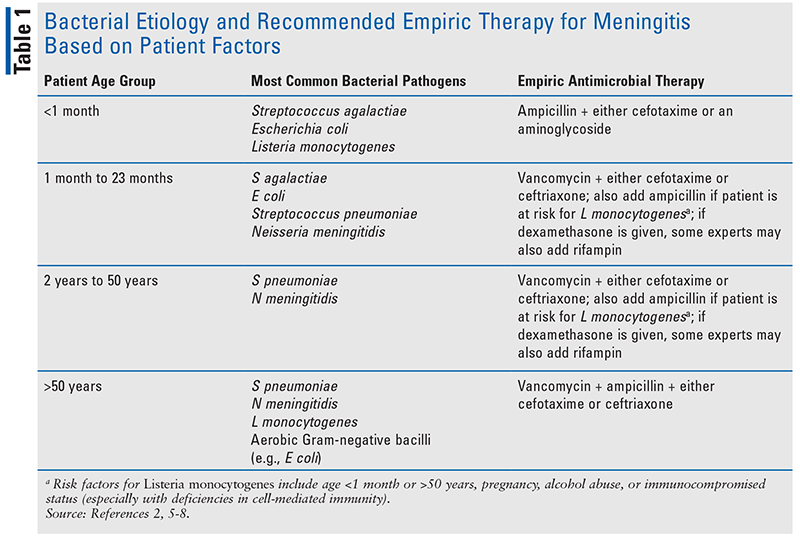


Treatment And Prevention Of Community Acquired Bacterial Meningitis



Asmscience Examination Of Gram Stains Of Spinal Fluid Bacterial Meningitis
Apr 29, 21 · Meningitis is an inflammation of the membranes surrounding the brain and the spinal cord the researchers found that both S pneumoniae and H influenzae activated stronger immune protectionsMay 25, 21 · Pneumococcal meningitis is caused by Streptococcus pneumoniae bacteria (also called pneumococcus, or S pneumoniae) This type of bacteria is the most common cause of bacterial meningitis in adults It is the second most common cause of meningitis in children older than age 2 Risk factors include Alcohol use;May 23, · Patients with S pneumoniae meningitis should be admitted to the hospital and treated with parenteral antibiotics The use of systemic steroids within



Pathogenesis And Pathophysiology Of Pneumococcal Meningitis Sciencedirect
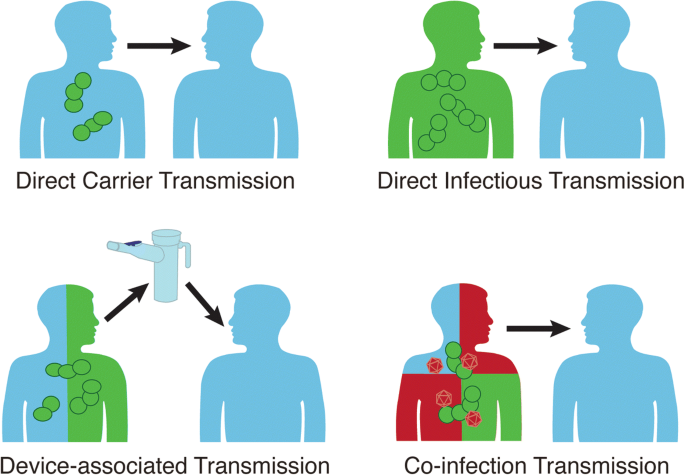


Streptococcus Pneumoniae Outbreaks And Implications For Transmission And Control A Systematic Review Pneumonia Full Text
Feb 23, 18 · Streptococcus pneumoniae (S pneumoniae) is a widespread bacteria responsible for many illnesses, including meningitis, pneumonia, and sinus infections The bacteria spread easily and quickly fromSep 06, 17 · With the decline of invasive Haemophlius influenzae type b disease, S pneumoniae has become the leading cause of bacterial meningitis among children younger than 5 years old in the United States Before routine use of pneumococcal conjugate vaccine, children younger than 1 year old had the highest rates of pneumococcal meningitis, approximately 10 cases per 100,000Streptococcus pneumoniae meningitis, group B streptococcal infection of the newborn, and Listeria • Reporting Form(s) and/or Mechanism The Ohio Disease Reporting System (ODRS) should be used to report lab findings to the Ohio Department of Health (ODH) For



Pneumococcal Disease Photos Cdc



How Penicillin Acts Like Tnt For Bacteria Hhmi
Mar 29, 18 · S pneumoniae is a leading bacterial cause of a wide range of infections, including otitis media, communityacquired pneumonia, sepsis and meningitisMeningitis S pneumoniae is the leading cause of bacterial meningitis among children less than five years of ageand is also a common cause of acute otitis media Over 90 serotypes have been identified, but only a few serotypes produce the majority of pneumococcal infectionsJun 11, 18 · S pneumoniae infection was the most common cause of bacterial meningitis in the 'all children' group, ranging from 225% (Europe) to 411% (Africa), and in all adults ranging from 96% (Western Pacific) to 752% (Africa)



Pneumococcus Bacterium Britannica
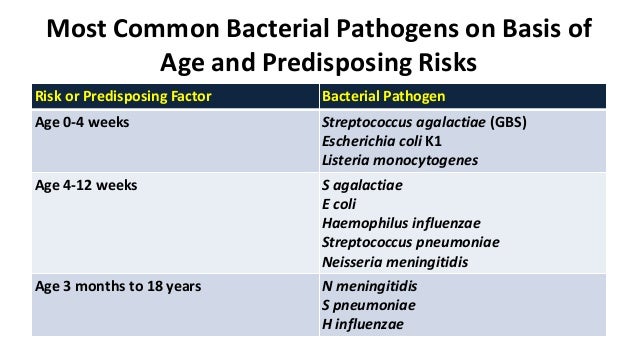


Acute Bacterial Meningitis
Aug 04, 16 · S pneumoniae and H influenzae are the most common organisms found prior to diagnosis and may continue to cause sinusitis and otitis after diagnosis and the initiation of gammaglobulin substitution therapy Severe, difficulttotreat enteroviral infections (often manifest as dermatomyositis or chronic meningoencephalitis) can be prevented byJan , 19 · Meningitis S pneumoniae is the most common cause of sporadic bacterial meningitis No distinctive clinical or laboratory features of pneumococcal meningitis enable the physician to suspect S pneumoniae over other causatie bacteria Headache, fever, and stiff neck or neck pain predominate A clouded sensorium reflects the involvement of theLa meningitis neumocócica es causada por la bacteria Streptococcus pneumoniae (también llamada neumococo o S pneumoniae)Este tipo de bacteria es la causa más común de meningitis bacteriana en los adultos Es la segunda causa más común de meningitis
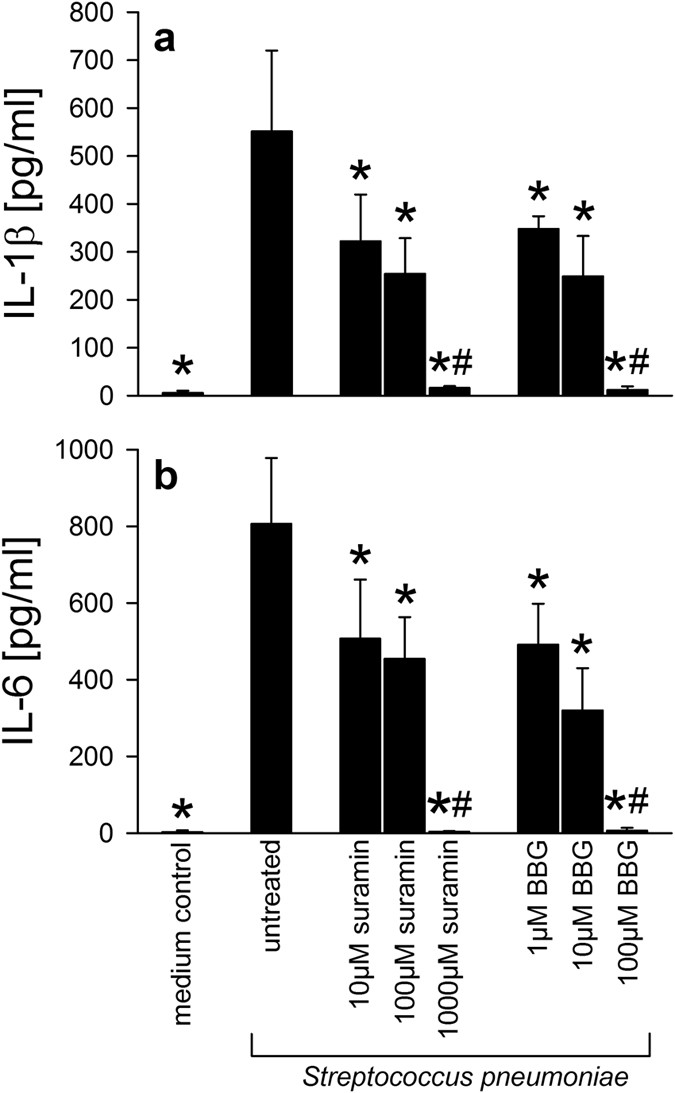


Role Of Purinergic Signaling In Experimental Pneumococcal Meningitis Scientific Reports



Pneumococcal Meningitis Medlineplus Medical Encyclopedia
Bacteremia was common in meningitis due to S agalactiae (80%) Only one patient died Conclusions Meningitis caused by streptococci other than S pneumoniae are often related to a distant focus of infection or to neurosurgical procedures and, in our experience, they seem to have a good outcomeJul 09, 12 · Pneumococcal meningitis can occur when the Streptococcus pneumonia bacteria invade the bloodstream, cross the bloodbrain barrier and multiply within the fluid surrounding the spine and brainNov 29, 15 · Indeed, while S pneumoniaeis the leading bacterial etiology of purulent meningitis in adults, S pyogenesmeningitis is by itself a rare condition, and is reported in a total of 29 adult patients, including the one reported here 8–11



Pin On Streptococcus


Stock Image Photomicrograph Of Streptococcus Pneumoniae Also Called Pneumococcus A Gram Positive Coccoid Bacterium That Causes Pneumonia Meningitis And Other Infections In A Blood Broth Culture Mag 1000x At 24 X 36 Mm
Apr 29, 19 · The S pneumoniae serotype, 9 N is known to be very virulent and must have spread to the bloodstream and further on to the CSF causing meningitis 21, 22 Remarkably, in this case the bacteria also caused NF of the leg, which developed over a very similar time course to the meningitisDec 17, 08 · Effects of New Penicillin Susceptibility Breakpoints for Streptococcus pneumoniae United States, 0607 Streptococcus pneumoniae (pneumococcus) is a common cause of pneumonia and meningitis in the United States Antimicrobial resistance, which can result in pneumococcal infection treatment failure, is identified by measuring the minimum inhibitorySep 12, 15 · An analysis for different bacteria causing meningitis showed that patients with meningitis due to Streptococcus pneumoniae (S pneumoniae) treated with corticosteroids had a lower death rate (299% versus 360%), while no effect on mortality was seen in patients with Haemophilus influenzae (H influenzae) and Neisseria meningitidis (N


Pneumococcal Meningitis


Streptococcus Pneumoniae In Cerebral Spinal Fluid Csf Pneumococci In Cerebral Spinal Fluid Csf Gram Stain
Sep 12, 09 · S pneumoniae causes around 11% (8–12%) of all deaths in children aged 1–59 months (excluding pneumococcal deaths in HIVpositive children) Achievement of the UN Millennium Development Goal 4 for child mortality reduction can be accelerated by prevention and treatment of pneumococcal disease, especially in regions of the world with the greatest burdenApr , · After exposure to an index case involving H influenzae, N meningitidis, or S pneumoniae, temporary nasopharyngeal carriage of the organism is typical An association between carriage and the riskJan 19, 21 · For isolates of S pneumoniae with resistance to a cephalosporin (defined as an MIC >2 mcg/mL), rifampin may be continued or added because it has been shown to be synergistic with ceftriaxone against cephalosporinresistant S pneumoniae 6,12 PREVENTION Chemoprophylaxis



Streptococcus Pneumoniae Pneumococcus Overview



Figure 1 From Recurrent Streptococcus Pneumoniae 23 F Meningitis Due To Cerebrospinal Fluid Leakage From The Ear Cannel A Case Report Semantic Scholar
Streptococcus pneumoniae is the main cause of community acquired pneumonia and meningitis in children and the elderly, and of sepsis in those infected with HIV The organism also causes many types of pneumococcal infections other than pneumoniaUse of vaccines for H influenzae type B and, to a lesser extent, for N meningitidis and S pneumoniae has reduced the incidence of bacterial meningitis Physical measures Keeping patients in respiratory isolation (using droplet precautions) for the first 24 hours of therapy can help prevent meningitis from spreadingJun 18, 18 · Streptococcus pneumoniae is the leading cause of bacterial meningitis for persons of all ages (1) Pneumococcal meningitis is a relatively rare but the most severe form of invasive pneumococcal disease (IPD)



Burden Of Streptococcus Pneumoniae And Haemophilus Influenzae Type B Disease In Children In The Era Of Conjugate Vaccines Global Regional And National Estimates For 00 15 The Lancet Global Health



Scielo Brasil Pathophysiology Of Acute Meningitis Caused By Streptococcus Pneumoniae And Adjunctive Therapy Approaches Pathophysiology Of Acute Meningitis Caused By Streptococcus Pneumoniae And Adjunctive Therapy Approaches
About Meningitis, Pneumococcal Pneumococcal meningitis is an infection that causes inflammation of the membranes covering the brain and spinal cord caused by the bacteria Streptococcus pneumoniae
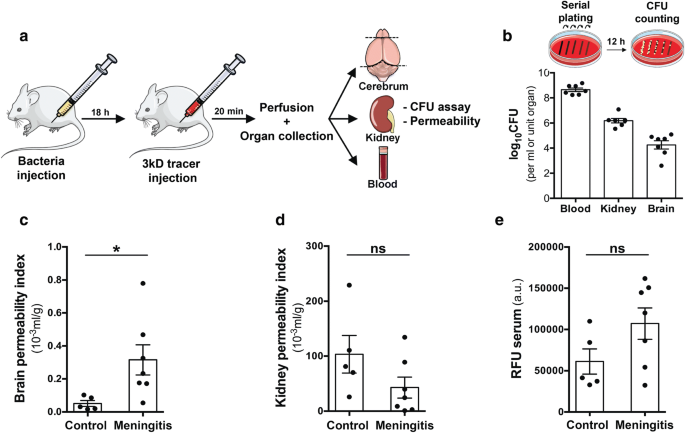


Hif 1a Is Involved In Blood Brain Barrier Dysfunction And Paracellular Migration Of Bacteria In Pneumococcal Meningitis Springerlink
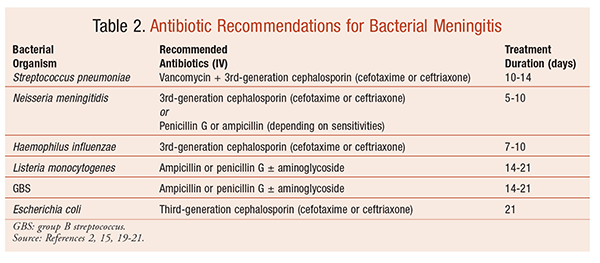


A Review Of Pediatric Bacterial Meningitis



Pathogenesis And Pathophysiology Of Pneumococcal Meningitis Sciencedirect



S Pneumoniae Adheres To Endothelial Cells By Using Pspc Which Binds Download Scientific Diagram



A Mucus Breakdown S Pneumoniae Colonization Of The Nasopharynx Is Download Scientific Diagram
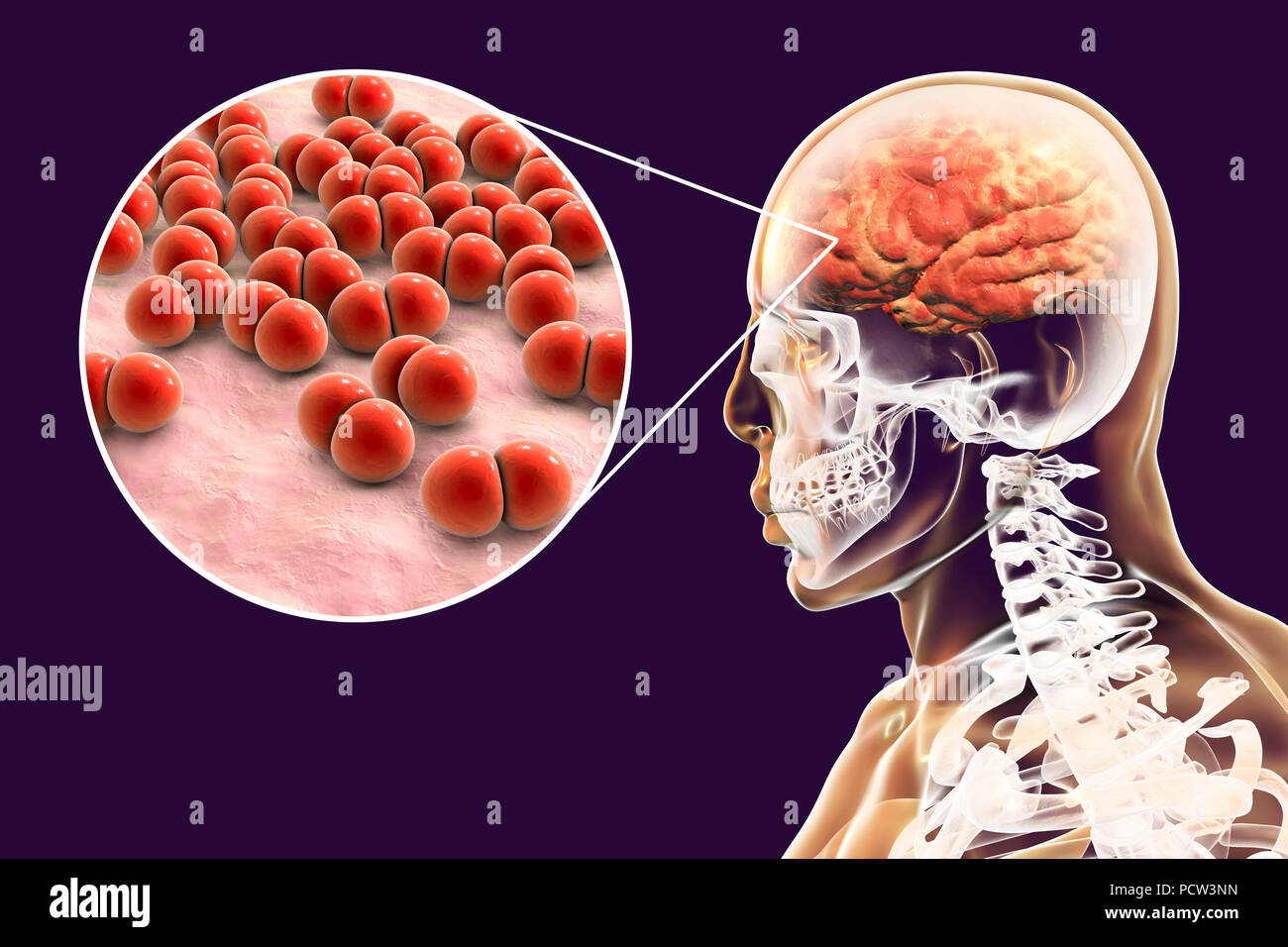


Brain Infection Caused By Streptococcus Pneumoniae Bacteria Computer Illustration S Pneumoniae Are Gram Positive Bacteria Arranged In Pairs Diplococci They Are Common Causative Agents Of Infections Of Different Location Including Bacterial
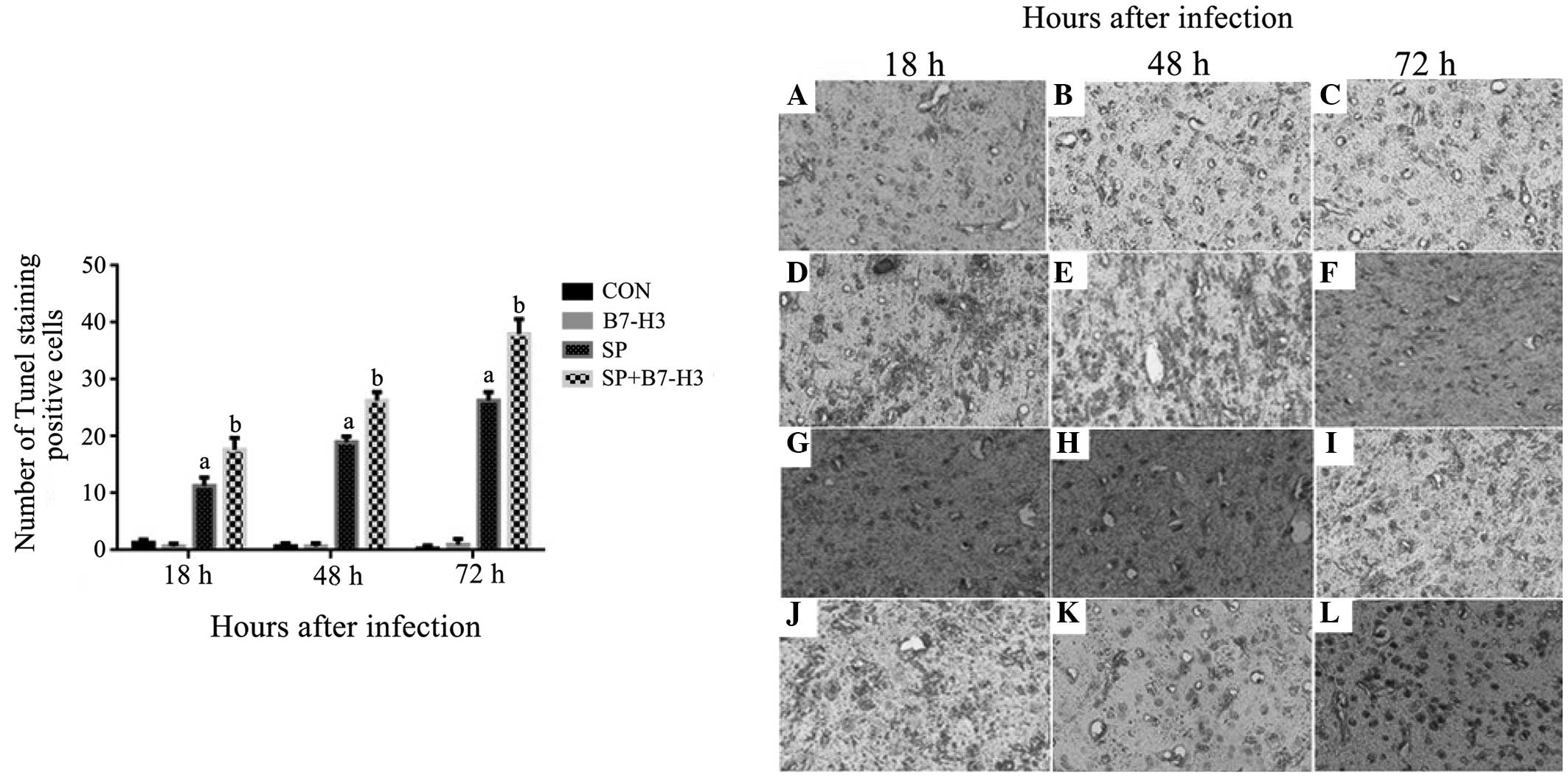


Homolog 3 Aggravates Brain Injury In A Murine Model Of Streptococcus Pneumoniae Induced Meningitis



Pneumococcal Meningitis Explained Meningitis Now
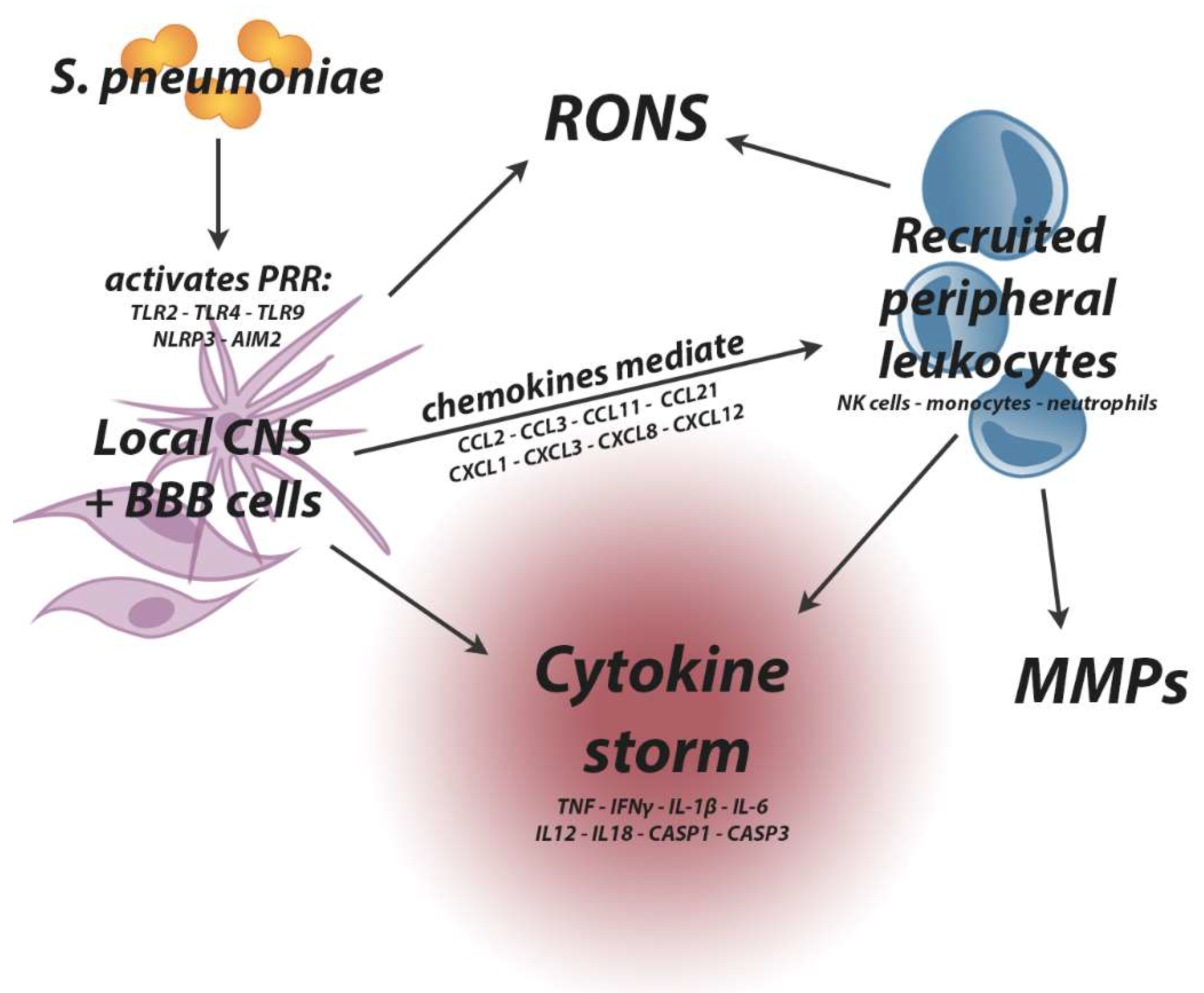


Ijms Free Full Text Blood Brain Barrier Pathology And Cns Outcomes In Streptococcus Pneumoniae Meningitis
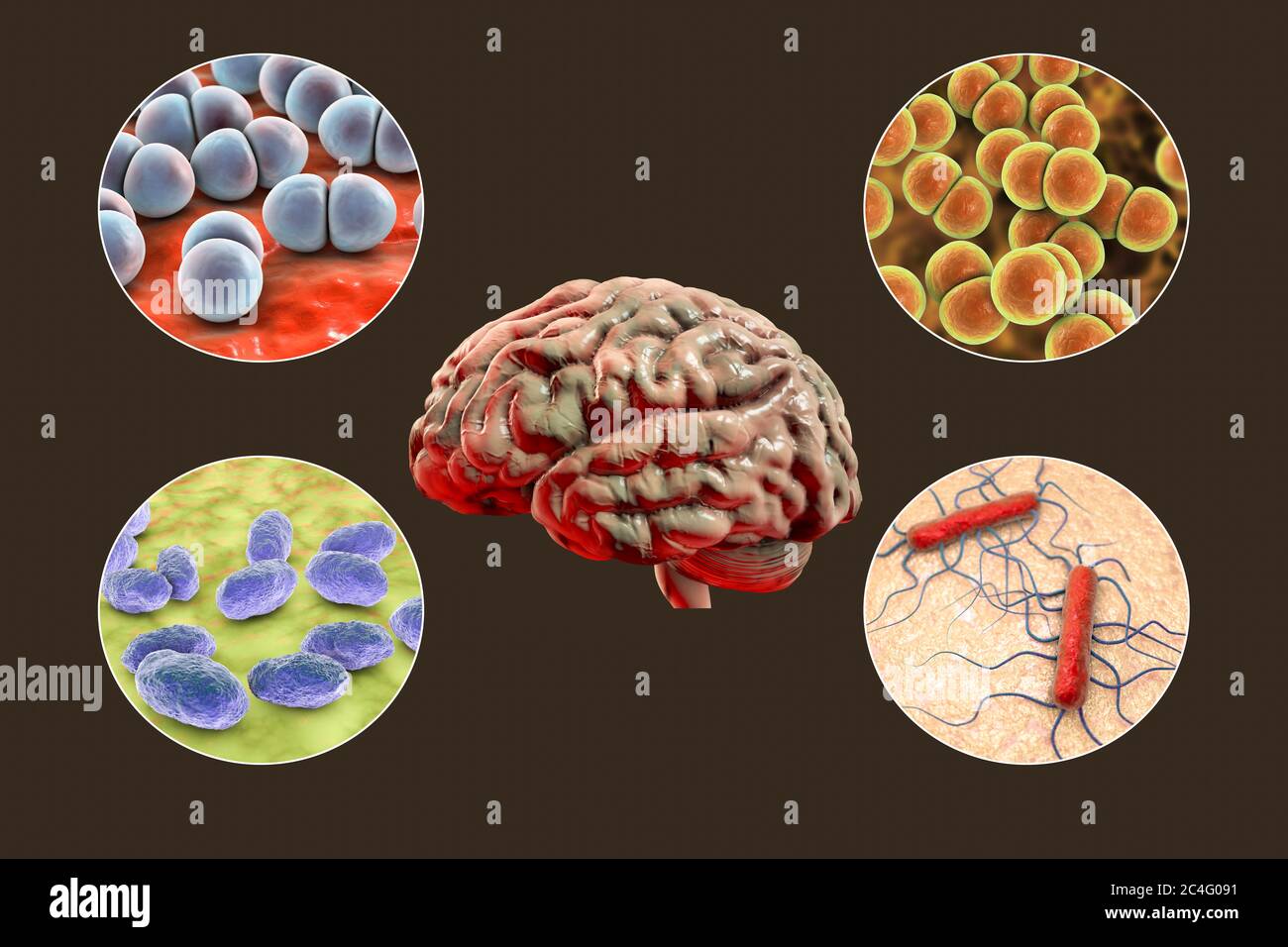


Causes Of Bacterial Meningitis Computer Illustration Neisseria Meningitidis Streptococcus Pneumoniae Haemophilus Influenzae And Listeria Monocytogenes Bacteria The Main Causative Agents Of Bacterial Meningitis Stock Photo Alamy



Pneumococcal Disease History Of Vaccines



Hospital Based Sentinel Surveillance For Streptococcus Pneumoniae And Other Invasive Bacterial Diseases In India Hbsspibd Design And Methodology Bmj Open



Nature Reviews Disease Primers A Twitter Streptococcus Pneumoniae And Neisseria Meningitidis Infections Can Lead To Meningitis T Co 5cyxup5ad4



How To Identify Streptococcus Pneumoniae Microbe Online



Streptococcus Pneumoniae Meningitis Microbewiki



Streptococcus Pneumoniae Photos And Premium High Res Pictures Getty Images
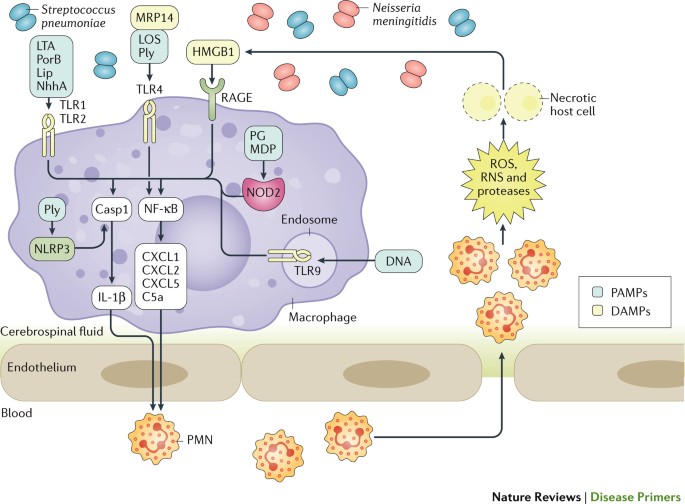


Community Acquired Bacterial Meningitis Nature Reviews Disease Primers
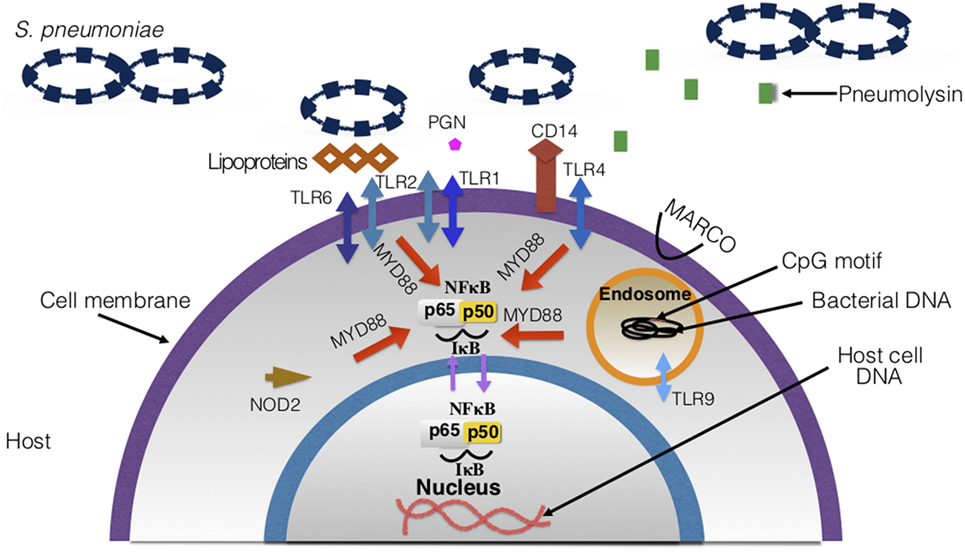


Frontiers Streptococcus Pneumoniae S Virulence And Host Immunity Aging Diagnostics And Prevention Immunology



Emerging Concepts In The Pathogenesis Of The Streptococcus Pneumoniae From Nasopharyngeal Colonizer To Intracellular Pathogen Subramanian 19 Cellular Microbiology Wiley Online Library
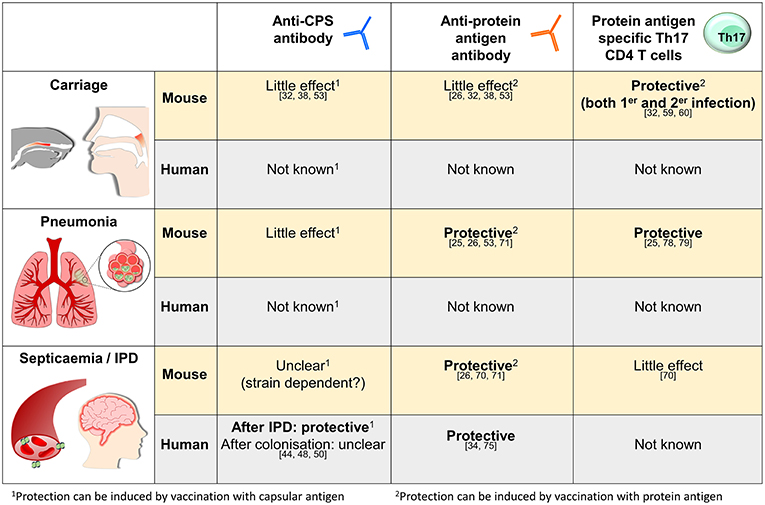


Frontiers Mechanisms Of Naturally Acquired Immunity To Streptococcus Pneumoniae Immunology



Meningitis Lab Manual Primary Culture And Presumptive Id Cdc



An Emerging Multidrug Resistant Pathogen Streptococcus Pneumoniae Intechopen



8 Microbio Streptococcus Pneumoniae Ideas Streptococcus Pneumoniae Microbiology Medical Laboratory Science
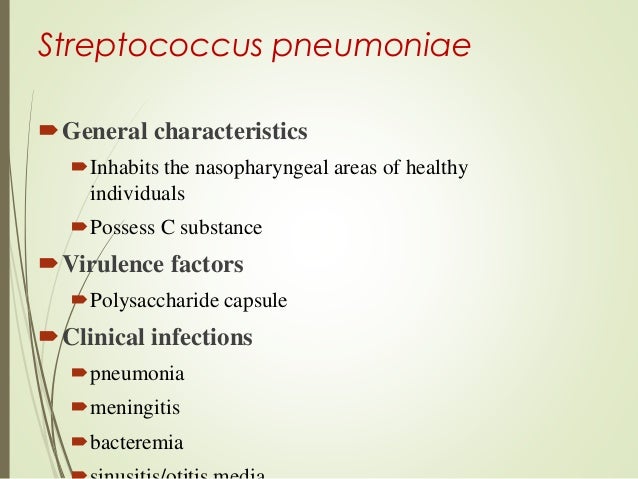


Bacterial Meningitis
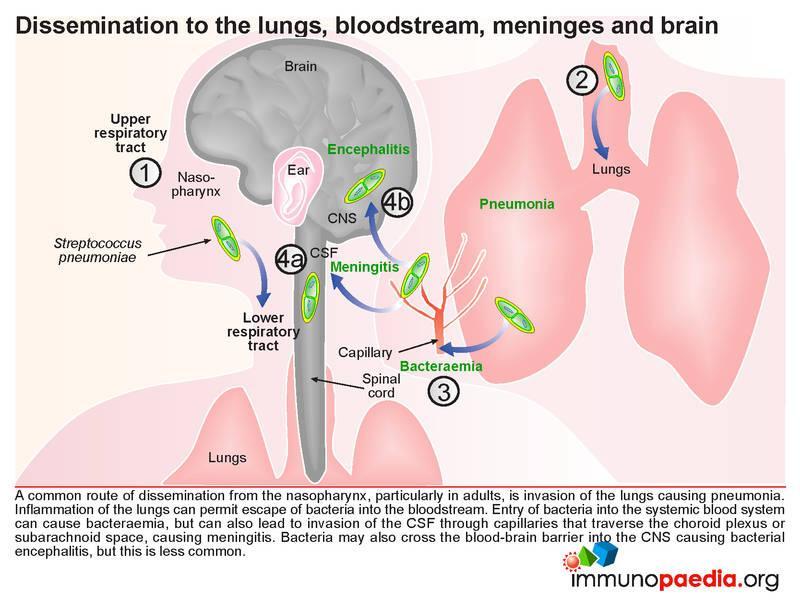


Streptococcal Pneumoniae Meningitis Immunopaedia



Causes Of Bacterial Meningitis Illustration Stock Image F030 4307 Science Photo Library



Figure 3 From Toll Like Receptors In Bacterial Meningitis Semantic Scholar
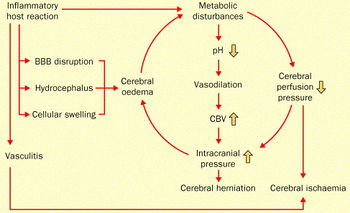


Streptococcus Pneumoniae Meningitis Microbewiki
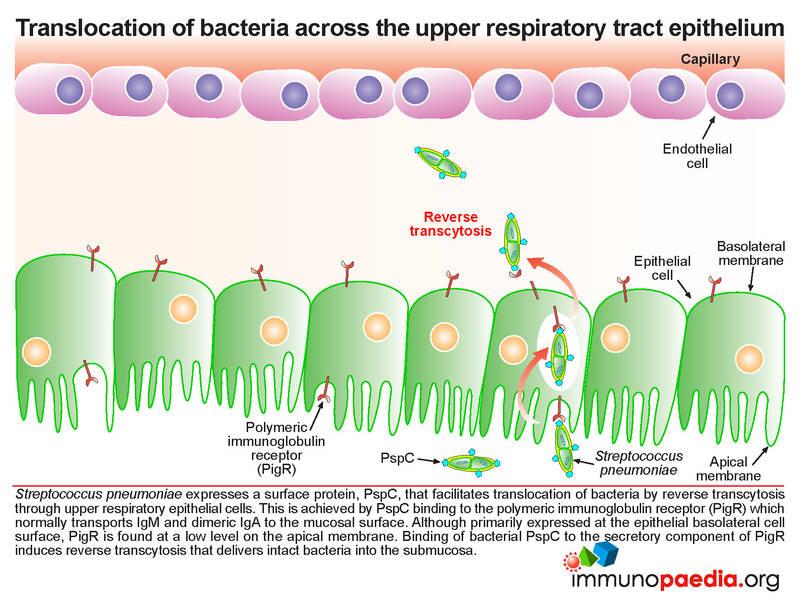


Streptococcal Pneumoniae Meningitis Case Study Immunopaedia
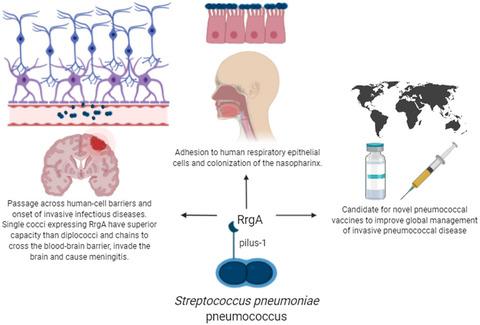


The Impact Of The Ancillary Pilus 1 Protein Rrga Of Streptococcus Pneumoniae On Colonization And Disease Molecular Microbiology X Mol


The Interpretation Of Streptococcus Pneumoniae Antimicrobial Susceptibilities Document Gale Onefile Health And Medicine
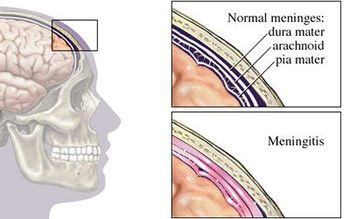


Pneumococcal Meningitis And The Role Of Streptococcus Pneumoniae Microbewiki
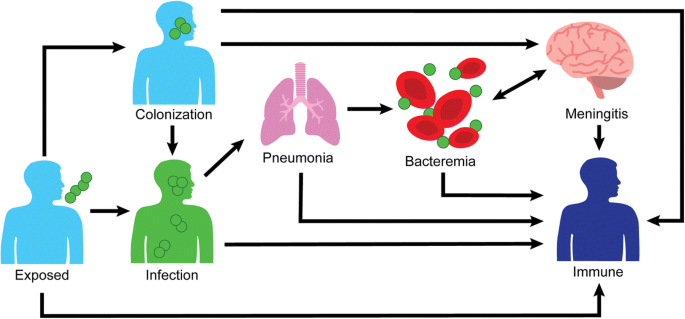


Streptococcus Pneumoniae Outbreaks And Implications For Transmission And Control A Systematic Review Pneumonia Full Text



Meningitis Lab Manual Id Characterization Of Strep Pneumoniae Cdc



Interactions Between Blood Borne Streptococcus Pneumoniae And The Blood Brain Barrier Preceding Meningitis



Joint Sequencing Of Human And Pathogen Genomes Reveals The Genetics Of Pneumococcal Meningitis Biorxiv
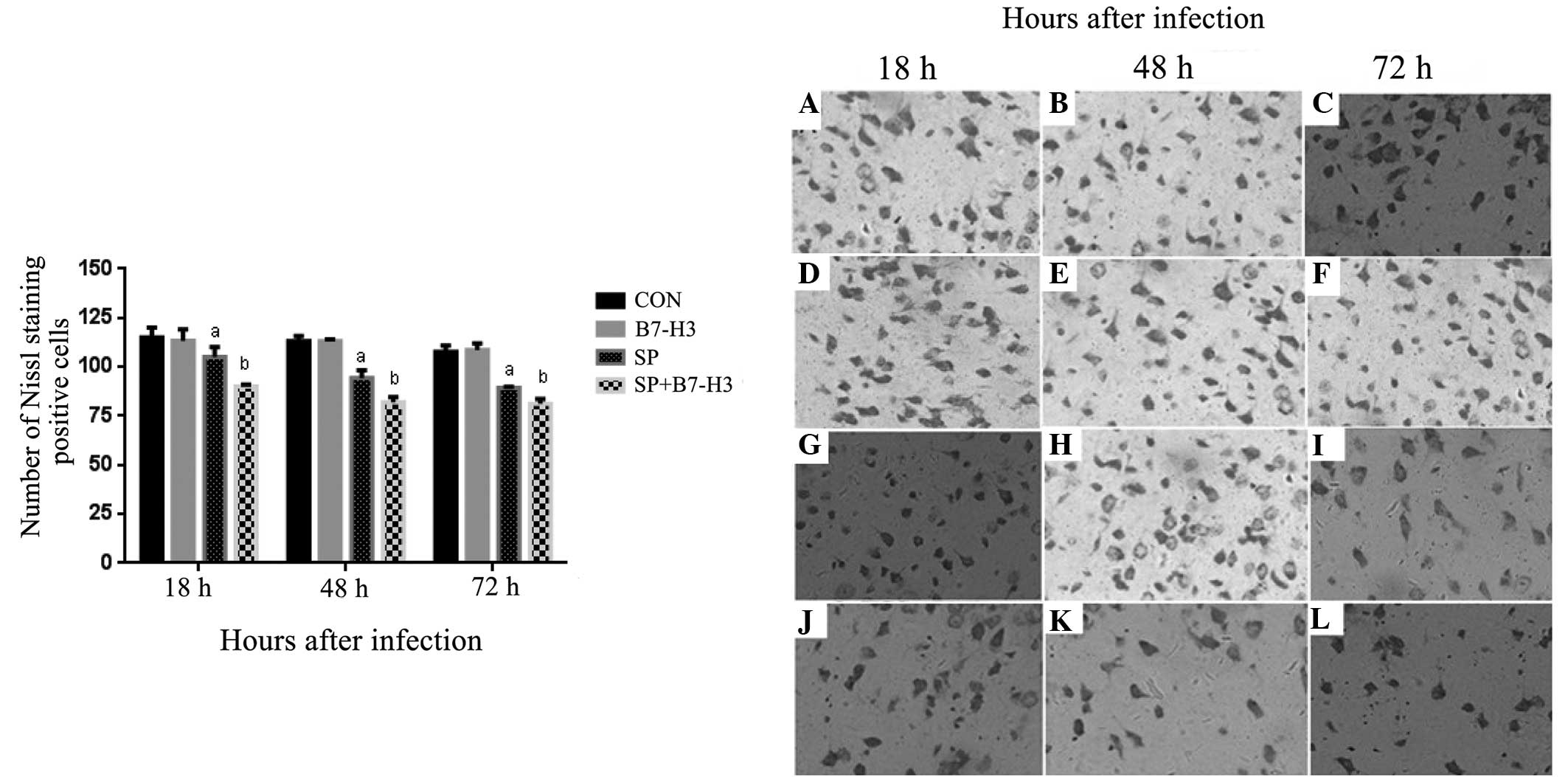


Homolog 3 Aggravates Brain Injury In A Murine Model Of Streptococcus Pneumoniae Induced Meningitis



How Does Streptococcus Pneumoniae Invade The Brain Trends In Microbiology
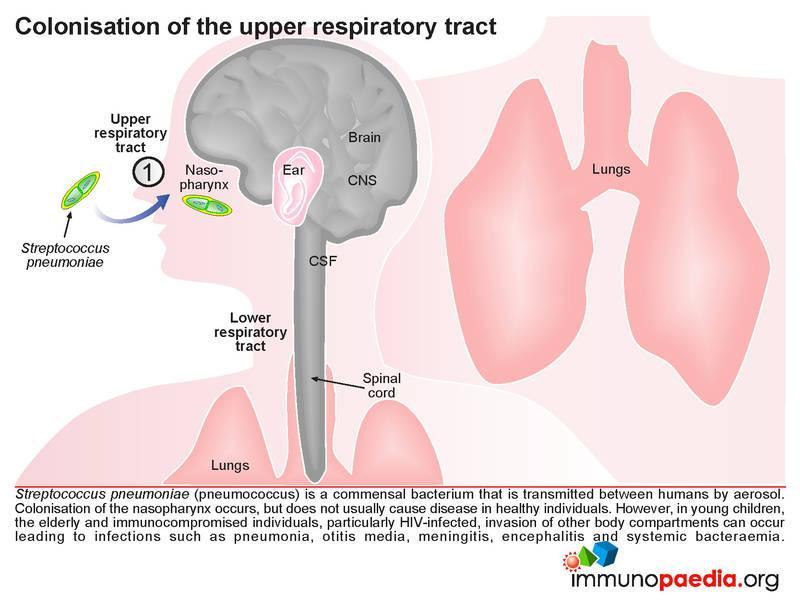


Streptococcal Pneumoniae Meningitis Case Study Immunopaedia



Streptococcus Pneumoniae Infection And Disease Youtube



The Mic Of Tested Antibiotics Among S Pneumoniae Isolated From The Download Table



Pathogenesis And Pathophysiology Of Pneumococcal Meningitis Sciencedirect
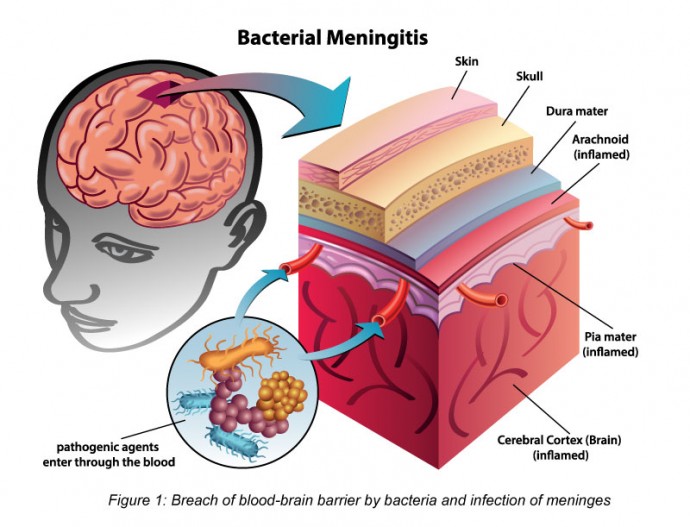


Meningococcal Meningitis Positive Parenting



Streptococcus Pneumoniae Transmission Colonization And Invasion Abstract Europe Pmc



Figure 1 Role Of Oxidative Stress In The Pathophysiology Of Pneumococcal Meningitis



Genome Dynamics In Neisseria Meningitidis Haemophilus Influenzae And Download Scientific Diagram



Pneumococcal Disease National Foundation For Infectious Diseases


Streptococcus Pneumoniae Other Gram Positive Cocci And The Alpha Haemolytic Streptococci Bacteriology Medical Microbiology And Infection



Scielo Saude Publica Meningitis And Pneumonia In Guatemalan Children The Importance Of Haemophilus Influenzae Type B And Streptococcus Pneumoniae Meningitis And Pneumonia In Guatemalan Children The Importance Of Haemophilus Influenzae
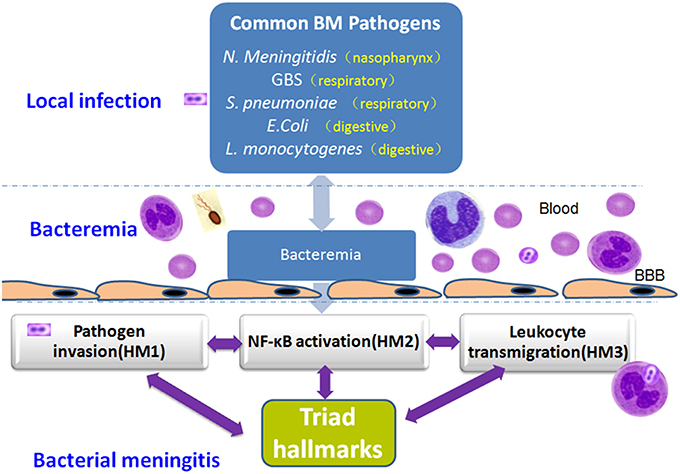


Frontiers Pathogenic Triad In Bacterial Meningitis Pathogen Invasion Nf Kb Activation And Leukocyte Transmigration That Occur At The Blood Brain Barrier Microbiology


Streptococcus Pneumoniae Induces Pyroptosis Through The Regulation Of Autophagy In Murine Microglia Oncotarget



Pdf Contribution Of Pili Of S Pneumoniae In The Onset Of Meningitis Semantic Scholar
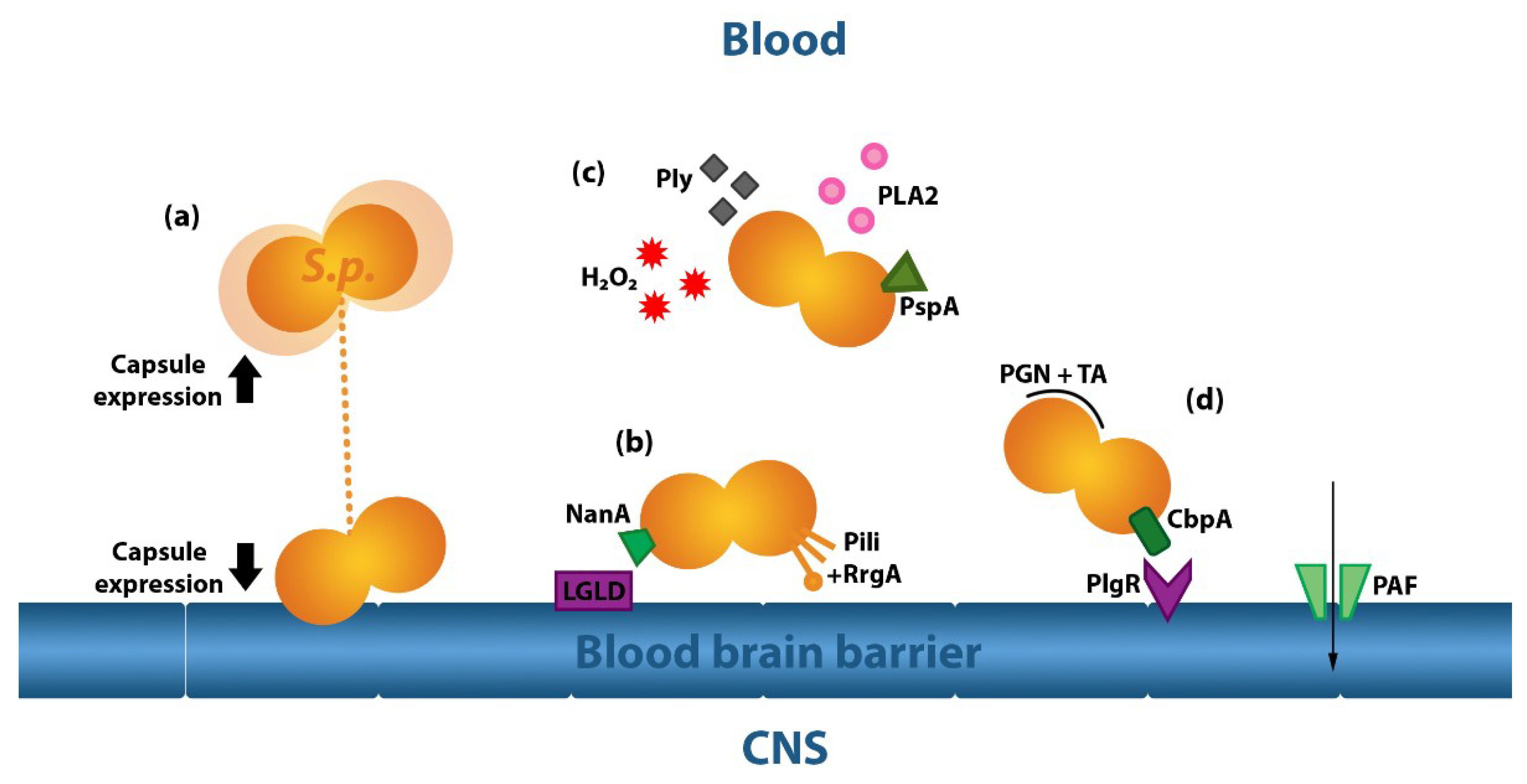


Ijms Free Full Text Blood Brain Barrier Pathology And Cns Outcomes In Streptococcus Pneumoniae Meningitis



Fun With Microbiology What S Buggin You Streptococcus Pneumoniae



Streptococcus Pneumoniae Secretes Hydrogen Peroxide Leading To Dna Damage And Apoptosis In Lung Cells Pnas
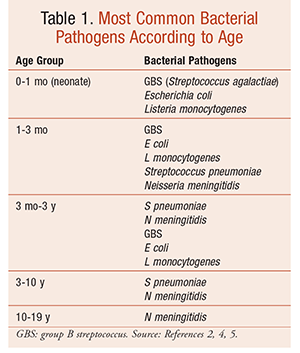


A Review Of Pediatric Bacterial Meningitis


Streptococcus Pneumoniae And Pneumococcal Pneumonia



Streptococcus Pneumoniae And Bacterial Meningitis Microbiology Lectures Youtube



Joint Sequencing Of Human And Pathogen Genomes Reveals The Genetics Of Pneumococcal Meningitis Nature Communications
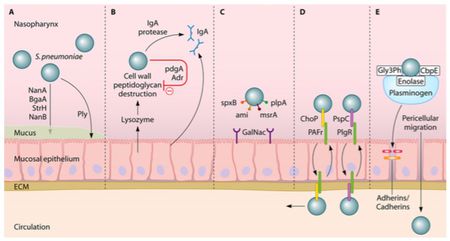


Pneumococcal Meningitis And The Role Of Streptococcus Pneumoniae Microbewiki
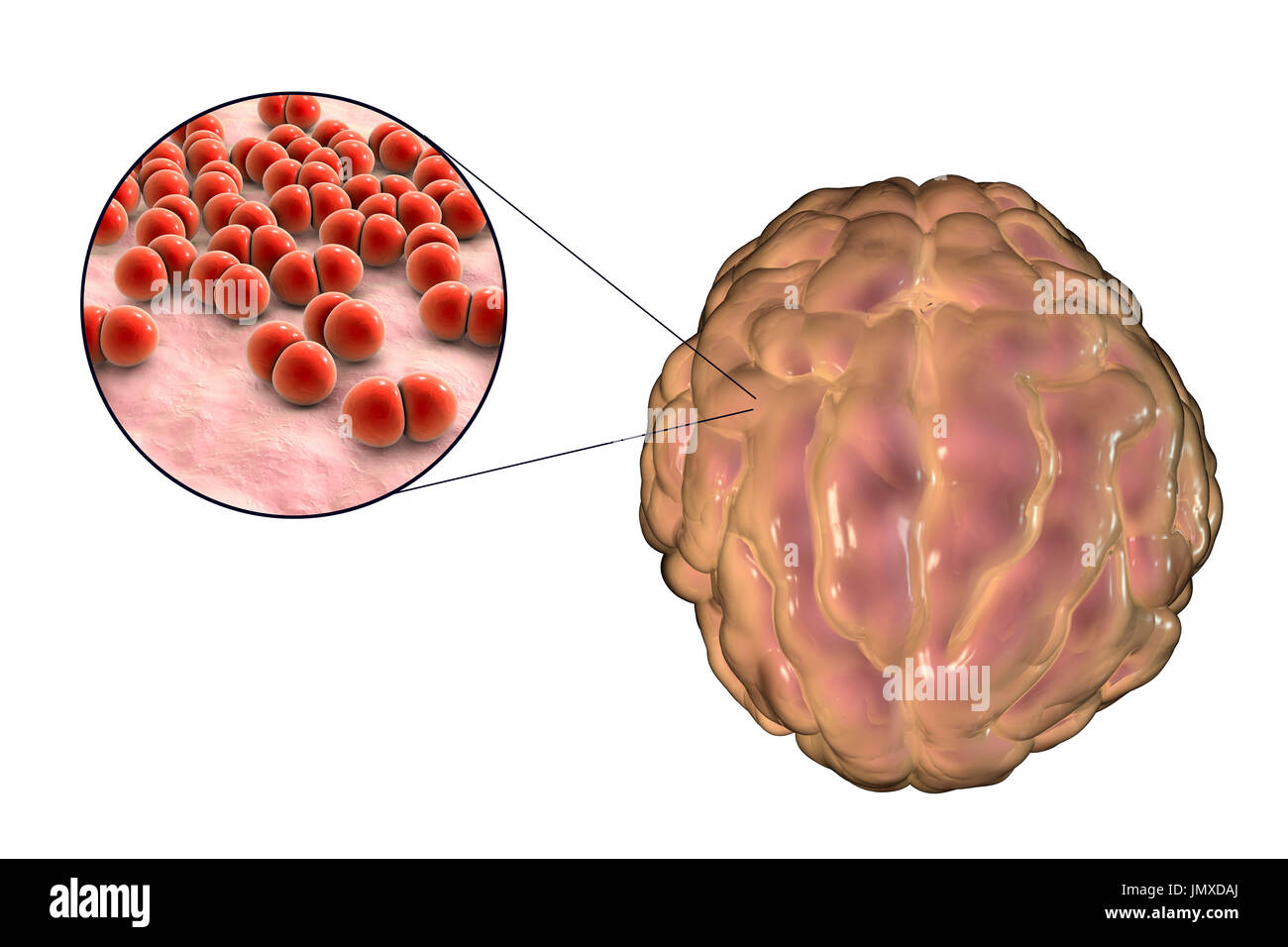


Meningitis Caused By The Bacterium Streptococcus Pneumoniae Computer Illustration The Illustration Shows Swelling Of Meninges And Close Up View Of Bacteria S Pneumoniae Stock Photo Alamy
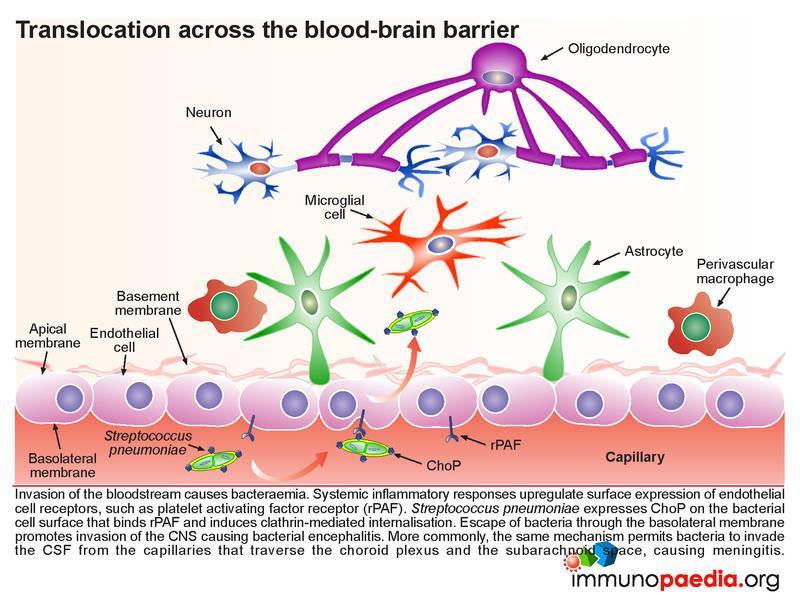


Streptococcal Pneumoniae Meningitis Case Study Immunopaedia



Streptococcus Pneumoniae Antigens Creative Diagnostics



Streptococcus Pneumoniae Colonisation The Key To Pneumococcal Disease The Lancet Infectious Diseases
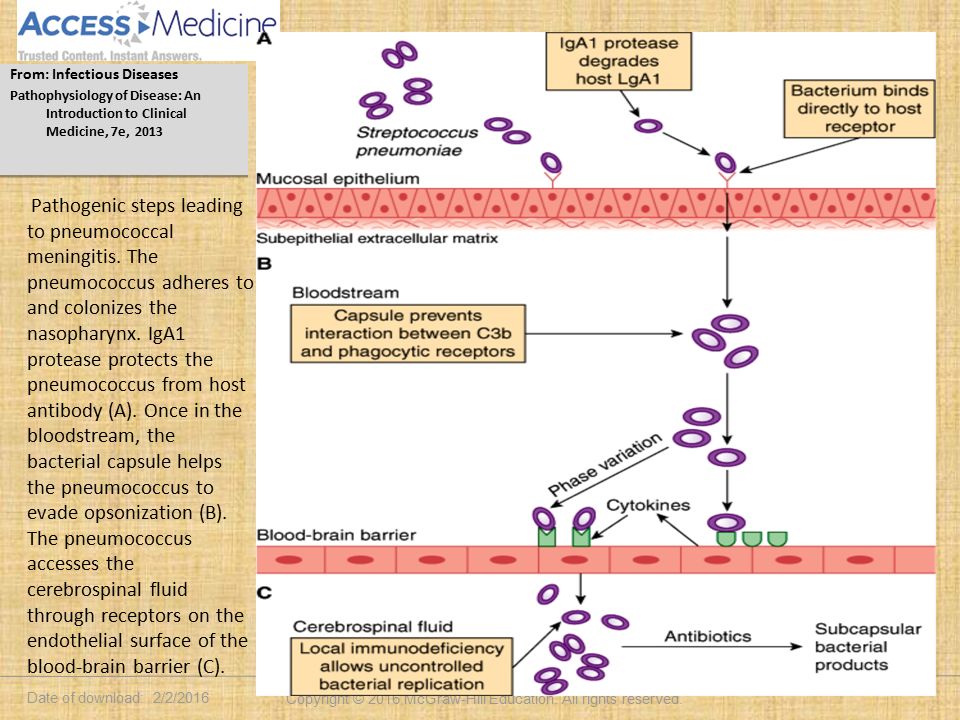


Infectious Disease Dr Bikramajit Singh Saroya Ppt Download



Meningitis Lab Manual Primary Culture And Presumptive Id Cdc
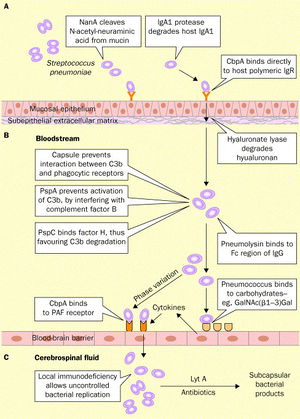


Streptococcus Pneumoniae Meningitis Microbewiki



Meningitis Causes


Bacterial Cytolysin During Meningitis Disrupts The Regulation Of Glutamate In The Brain Leading To Synaptic Damage


Csf I Got The Other Day Meningitis Panel Positive For Strep Pneumoniae Medlabprofessionals



Histopathology During Experimental S Pneumoniae Meningitis A E Download Scientific Diagram
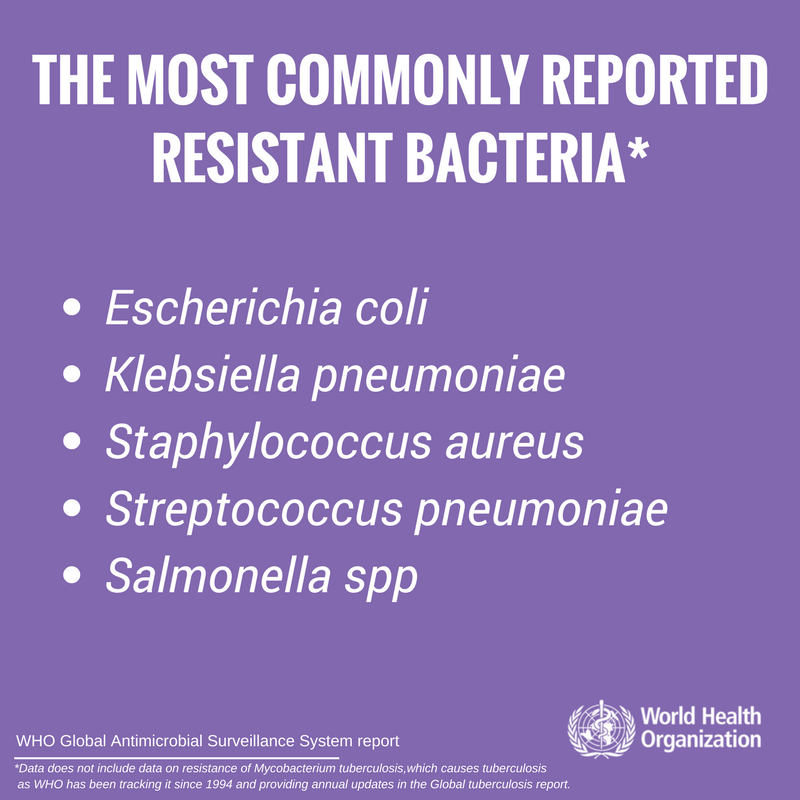


World Health Organization Who En Twitter Most Commonly Reported Resistant Bacteria E Coli Causes Serious Food Poisoning K Pneumoniae Causes Pneumonia Other Infections S Aureus Causes Infections In Health Facilities Streptococcus



Bacterial Meningitis Symptoms Causes And Treatment
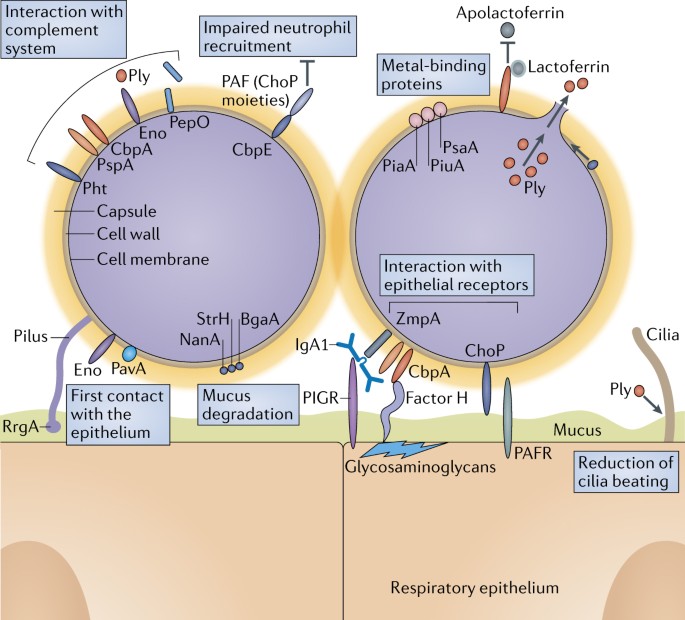


Streptococcus Pneumoniae Transmission Colonization And Invasion Nature Reviews Microbiology
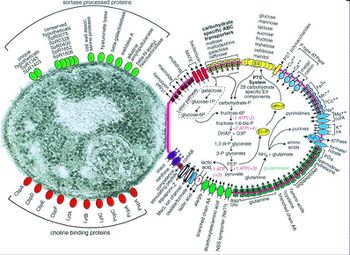


Pneumococcal Meningitis And The Role Of Streptococcus Pneumoniae Microbewiki



Vaccine Offers Hope For Pneumonia Which Includes Sepsis And Meningitis



Murine Model Of Meningitis By S Pneumoniae C57bl 6j Mice Were Download Scientific Diagram



0 件のコメント:
コメントを投稿